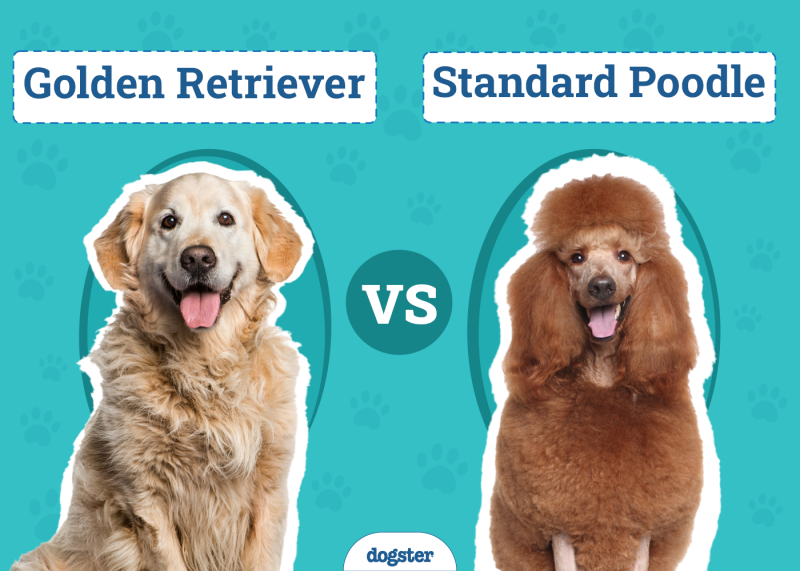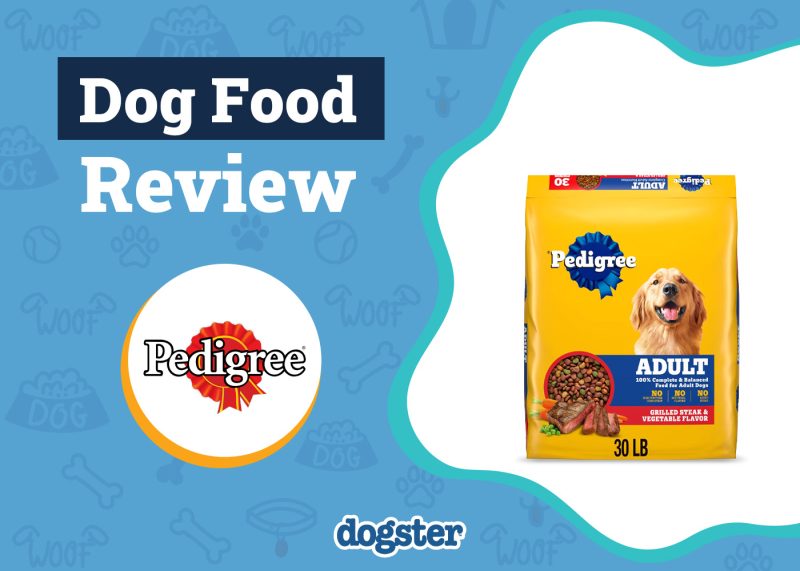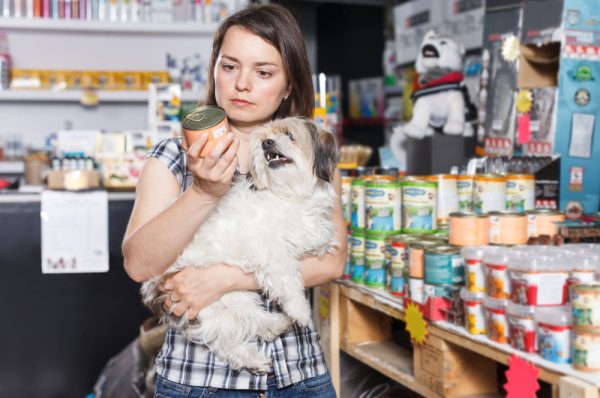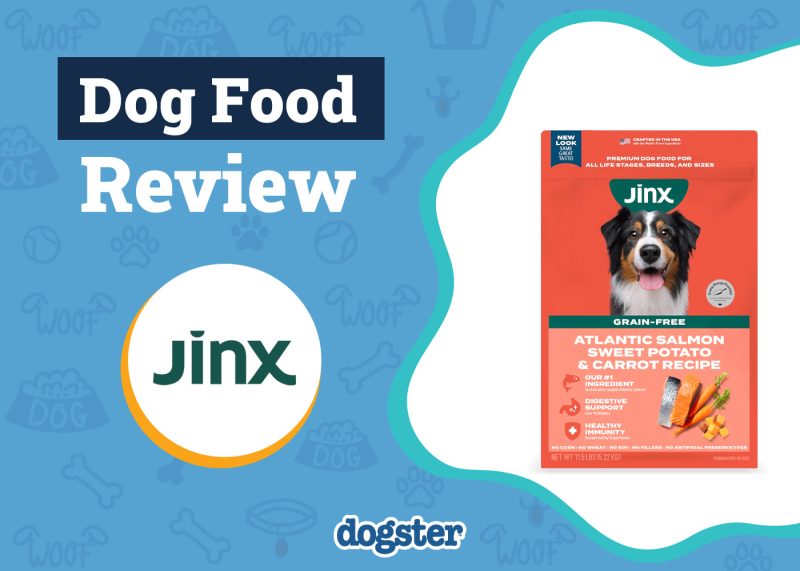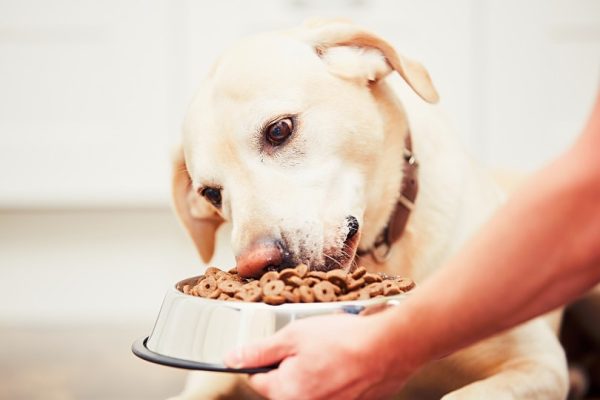There are several tasty dishes that we enjoy by themselves, but the moment that you add a dollop of sour cream, the dish is transformed into something magical! It’s only natural that you want to share your food with your beloved dog, but is something like sour cream safe for dogs?
Sour cream is not toxic to dogs, but eating too much of it isn’t good for them.
Let’s discuss why sour cream isn’t recommended for dogs and what you should look out for if your dog eats it.

Can Dogs Eat Sour Cream?
Technically, dogs can eat sour cream without serious issues, but it might cause discomfort for dogs with sensitive stomachs. This is even more true for dogs with lactose intolerance.
- Gas
- Bloating
- Vomiting
- Diarrhea
So, if you notice these signs in your dog after they have had sour cream or another dairy product, it’s likely that they shouldn’t eat any dairy at all.
What Causes Lactose Intolerance?
When young animals nurse, their bodies produce the lactase enzyme, which aids in breaking down the lactose sugars in their mother’s milk. As animals age, though, their bodies start producing less lactase, which makes it more difficult for their bodies to digest dairy. The undigested lactose sugar remains in their intestines and gets broken down by bacteria, which is what leads to cramping and diarrhea.
It’s important to note that every dairy product has varying degrees of lactose, with regular cow’s milk having the highest amount and by-products like yogurt and sour cream having less lactose. Also, not all dogs are lactose intolerant.
That said, even though sour cream is low in lactose, it can still cause stomach upset in a dog.


Issues With Giving Sour Cream to Your Dog
Food Allergies and Intolerances
Beyond lactose intolerance, dogs with sensitive stomachs shouldn’t be given sour cream. According to a 2016 study, many dogs with food allergies and intolerances have reactions primarily to beef, chicken, or dairy.1
- Recurrent skin infections (with yeast or bacteria) that don’t clear up
- Itchy skin and ears
- Frequent shaking of the head
- Redness of inner ears
- Hair loss
- Red and itchy feet and between the pads
- Frequent foot chewing
- Digestive upset
Fat Content
Sour cream is also high in calories and has a high fat content, which isn’t ideal for dogs that might have issues with obesity. The high fat content can also lead to an upset tummy and serious health issues like pancreatitis.
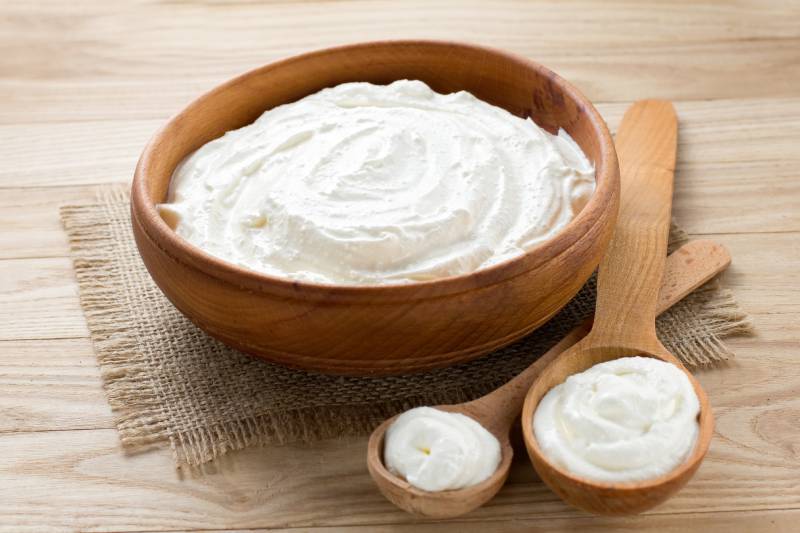
Additives
Sour cream has various additives and preservatives, including things like guar gum, carrageenan, renin, and gelatin. Most of the ingredients added to sour cream aren’t necessarily harmful to dogs but don’t provide any nutritional benefits either.
Does Sour Cream Have Any Benefits for Dogs?
Like any dairy product, sour cream contains calcium, but it’s not enough to make up for the high calories and fat content. Sour cream also contains phosphorus and vitamins A, B2, and B12, but it’s not that high in those vitamins and minerals.
Basically, your dog would need to eat a large amount of sour cream to derive any health benefits, but then the calories and fat would essentially cancel those out.


FAQs
What Do You Do if Your Dog Ate Sour Cream?
If your dog has consumed dairy in the past, particularly milk, without having a bad reaction to it, chances are that they will be fine. The worst that might happen is an upset stomach with diarrhea and gas, which should clear up on its own. But if the sour cream is flavored with anything like onions, chives, or garlic, they will need veterinary help.
If you’re at all concerned, contact your vet, who can let you know if you should bring your dog in or just wait it out. That said, sour cream is not toxic (unless it contains toxic ingredients like garlic), so they will most likely be fine.
Can Dogs Have Cheese?
The same rules for sour cream apply here. If your dog has a sensitive stomach or is lactose intolerant, they won’t fare any better with cheese. But some cheeses are better than others for dogs.
The best cheeses are:
- Cheddar
- Cottage cheese
- Mozzarella
- Parmesan
- Swiss
But stay away from the following cheeses:
- Any cheese with herbs and spices
- Blue cheese
- Brie
- Goat cheese
- Provolone
Can Dogs Have Yogurt?
Yogurt is definitely one of the healthier dairy products that you can add to your dog’s diet, as long as your dog doesn’t have any health problems and your vet has given you permission. It’s always essential to discuss any changes in your dog’s diet with your vet beforehand.
Before giving yogurt to your dog, ensure that it’s plain, low, or no fat and has no added ingredients like sugar. Avoid yogurt—and any other food—that contains xylitol, which is highly toxic for dogs.
If you need to speak with a vet but can't get to one, head over to PangoVet. It's our online service where you can talk to a vet online and get the advice you need for your pet — all at an affordable price!
What Are Human Foods That Are Safe to Give to Dogs as Treats?
It’s best to stay away from anything with a large amount of sugar, fat, and carbs.
- Bell peppers
- Blueberries
- Carrots
- Chicken (cooked, plain, with no seasonings)
- Green beans
- Peanut butter ( without xylitol)
- Pumpkin
- Watermelon
Ensure that everything is plain—with no added salt or sugar—and offered only in moderation, as these should be considered treats. Always consult your vet before giving your dog anything new.

In Conclusion
Sour cream isn’t inherently bad for dogs and won’t cause them any serious harm. But if you suspect that your dog has food allergies or is lactose intolerant, it’s best to stay away from it completely.
Since sour cream doesn’t really benefit your dog in any way, even if your dog can ingest it without any consequences, it’s simply best if you don’t offer it to them. But if your dog sneaks a lick when you’re not looking, they should be fine. Just speak to your vet if you’re concerned.
Featured Photo Credit: MaraZe, Shutterstock






